It would obviously be impossible to give a short but complete account of more than 31 years working with our managing director, so instead I shall dabble in and out of the history.
I first met Mr Kok by accident, in the autumn of 1949. He told me that he had founded a custard powder factory, an act that took considerable courage in those days. The war had only just ended and much of the country was still in ruins. The infrastructure was poor and money scarce. But this did not repress the 26-year-old Cor Kok’s spirit.
In early December 1949, I started as an accountant at Kok’s custard powder and flour producing factory, based in rented premises on Klaas Katerlaan. At first, we had no telephone and no bank giro account, as both were ‘under reconstruction’. Both our salesmen went out on the road by bike, or by taking their bike on the train and biking the rest of the journey. Goods were transported to the station on a delivery bike, just once a week. And we had a Fiat 500 van, which had seen much better days.
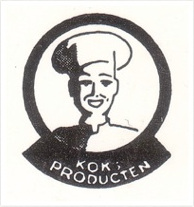
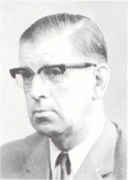
F.C.H. Schütte
Ex staffmember
Working hours then were very different from how they are these days. You only had time off on Saturday afternoons and Sundays, and during the week you worked until the job was finished. This meant that sometimes, you worked all night and didn’t go home until six o’clock the next morning. We were entitled to one week of holiday a year. I can’t imagine when Mr Kok slept; he seemed to work all day and all night, taking care of the purchasing and the lion’s share of sales. On top of this, he also managed to conjure up money.
But we had to work hard; the competition was fierce. In those days, there were more 60 custard powder factories in the Netherlands and they weren’t about to surrender their clientele to Cor Kok. The company survived and flourished thanks to all our efforts (particularly those of our boss), and Mr Kok married in September 1950.
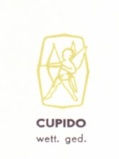
Deliveries to grocery stores gradually dried up with the arrival of purchasing organisations and later on, the supermarkets. Independent groceries disappeared. Instead, we started delivering to hospitals and nursing homes. We expanded the range to include sauces and other products to serve with the various custards and puddings we supplied.
The dairy factories (and there were a lot of them in those days) were having to contend with a serious milk surplus and came up with the idea of producing readymade custard. They had initially made their custard from regular custard powder, much of which was bought from us. Mr Kok joined forces with the laboratory of one of these factories to develop a product that was much more suitable for producing custard and which could be used to introduce flavours other than vanilla. Production took off and new machines were soon in place.
The problems of expansion started to be felt on the administrative side. The six invoicing machines could no longer keep up and the accounting machine came under serious pressure. In the early sixties, computers were advanced enough for small and medium-sized businesses to start using them, so Mr Kok purchased a computer to help solve the problems.
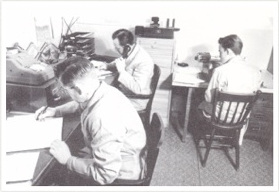
The administration back in the day
And in 1975
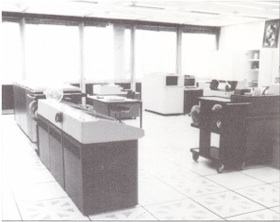
Computingcentre Frankeneng
There were also changes at the managerial level. Mr Kok was still the sole owner of the business, but the rapid growth was proving too much of a responsibility. I think he was employing between 150 and 200 staff by this time. A Board of Commissioners was set up to advise Mr Kok about managerial matters. A precursor of what would later become the Works Council was also established; an elected Staff Council.
The business was still operating from three separate locations (and later a fourth on Morsestraat), which was far from efficient and a waste of both time and resources. It was time to consider new and larger premises. The Board of Commissioners advised Mr Kok to turn the business into a public limited company under the name ‘Kok-Ede N.V.’, with Mr Kok as the only shareholder and Managing Director. In order to find new premises that would guarantee the continuation of the company into the future, Mr Kok and the Board of Commissioners started looking into the possibilities of forming a partnership with a larger company. This was a time-consuming business, but in 1969 the share package was finally sold to Cebeco in Rotterdam, making this company the new owner.
Mr Kok became Managing Director and two assistant managers were appointed, namely Mr Mattijssen and Mr Lindhout. A start could now be made on building new accommodation. Mr Kok and some of his staff visited a number of companies in the Netherlands and abroad to get ideas for the lay-out of the new premises and see how modern storage and order processing facilities might work.
Building work started in 1973 and took a year to complete. In August 1974, we moved into the fabulous new business premises that we all know and love.
So this is my brief version of the history of Kok-Ede: a story that shows how starting from nothing, Mr Kok managed to build up a business that would still be thriving thirty years later and where people actually enjoy going to work. Only a chosen few can claim to have achieved something like this.
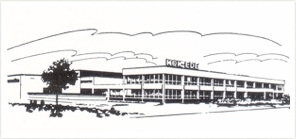
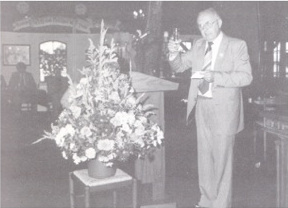
If anyone has earned the right to slow down and enjoy life, it’s Mr Kok. The only question that remains is: will he be able to?! And now it is time for the great man to pass the day-to-day running of his business to someone else. Those of you who know him like I do will realise that this too is a great achievement!
I’m sure that all those who have had the pleasure of working at Kok-Ede are grateful to have worked for a company that has been managed as well as this one, particularly in an era when so many businesses didn’t make it.
I’m sure that all those who have had the pleasure of working at Kok-Ede are grateful to have worked for a company that has been managed as well as this one, particularly in an era when so many businesses didn’t make it. I hope that Mr Driessen will continue the good work and guide Kok-Ede to even greater things. The foundations could not be more solid.
F.C.H. Schütte.


